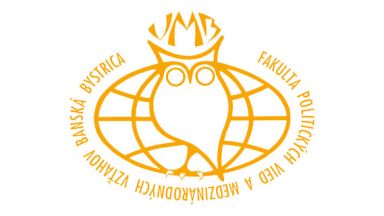Od demokracie k lidové demokracii aneb revoluce shora v Československu a Maďarsku po roce 1945
FROM DEMOCRACY TO PEOPLE'S DEMOCRACY OR THE REVOLUTION FROM ABOVE IN CZECHOSLOVAKIA AND HUNGARY AFTER 1945
Jan Bureš
***
Politické vedy, Volume 24, Number 1/2021, pages 8-33
DOI: https://doi.org/10.24040/politickevedy.2021.24.1.8-33
Recommended form for quotation of the article / Odporúčaná forma citácie článku:
Jan Bureš. 2021.Od demokracie klidové demokracii aneb revoluce shora v Československu a Maďarsku po roce 1945. In Politické Vedy. [online]. Vol. 24, No. 1, 2021. ISSN 1335–2741, pp. 8-33. Available at: DOI: https://doi.org/10.24040/politickevedy.2021.24.1.8-33
ABSTRACT
In the context of current discussions about changes in the political systems of new democracies in Central Europe and the strengthening of nationalist or authoritarian tendencies in present Hungary, the issue of shaping new political systems after the end of Second World Waris also being updated. It is at least useful to rethink the reasons why the vision of a new, so-called “popular democracy”, originally positively perceived by both the domestic and foreign public, eventually ended not only unsuccessfully, but even by building a new, non-democratic, or even totalitarian regime.This study analyzes the process of forming a new political and economic system in Czechoslovakia and Hungary after the Second World War. The contribution will be, on the one hand, a historical analysis that respects the contemporary internal political and international political contexts that existed in both countries in 1945. At the same time, the contribution will be a political analysis comparing the similarities and differences ofdevelopment in both countries. It will focus on the transformation of political elites in both countries as a result of the Second World War, as well as the fundamental transformation of the institutional framework in which the events took place. At the theoretical level, the study is based on the use of the concept of so-called hybrid democracy by L. Gilbert and P. Mohseni, where we will verify the presence and role of the so-called "guardianship institutions" in both post-war regimes. At the same time, the study is also based on the theoretical concept of the typology of political change by A. Stepan. The results show how he played a negative experience with the pre-war political-economic order and the transformation of the mentality of both national societies during Second World War as a significant argument in the radical changes in the political and economic system in both countries. Attention will also be paid to factors that have failed in both countries to attempt to build a "new type" of post-war democracy in these countries.
Key words: Limited Democracy, People’s Democracy, National and Social Revolution, Radical Reforms, Moscow negotiations, Communist Party, Hungarian Communism
Súbory na stiahnutie
| Názov | Veľkosť | Formát | Dátum | Zoradiť podľa: |
|---|---|---|---|---|
| Od demokracie k lidové demokracii aneb revoluce shora v Československu a Maďarsku po roce 1945 | Veľkosť: 460.8 kB | Formát: pdf | Dátum: 6.1.2024 |





